An Examination of Realism in Huntington's 'Clash of Civilization'
VerifiedAdded on 2022/09/06
|5
|1051
|27
Essay
AI Summary
This essay delves into the concept of realism as presented in Samuel Huntington's "Clash of Civilizations." It examines Huntington's argument that cultural and religious identities will be the primary source of conflict in the post-Cold War era, contrasting with the ideological and economic divisions of the past. The essay outlines the core tenets of realism, particularly classical realism, emphasizing the self-serving nature of states and their leaders, who prioritize national interests and security above all else. It explores how Huntington's thesis aligns with realist principles, highlighting the anarchical nature of the international system and the tendency for conflict to arise from cultural differences. The essay further analyzes Huntington's comparison of industrialized and agricultural societies, showing how differing access to resources and cultural values shape global dynamics and potential conflicts. The conclusion reinforces the idea that Huntington's work reflects realist perspectives on the inherent instability of the world order and the significance of cultural identity in shaping future conflicts.
1 out of 5
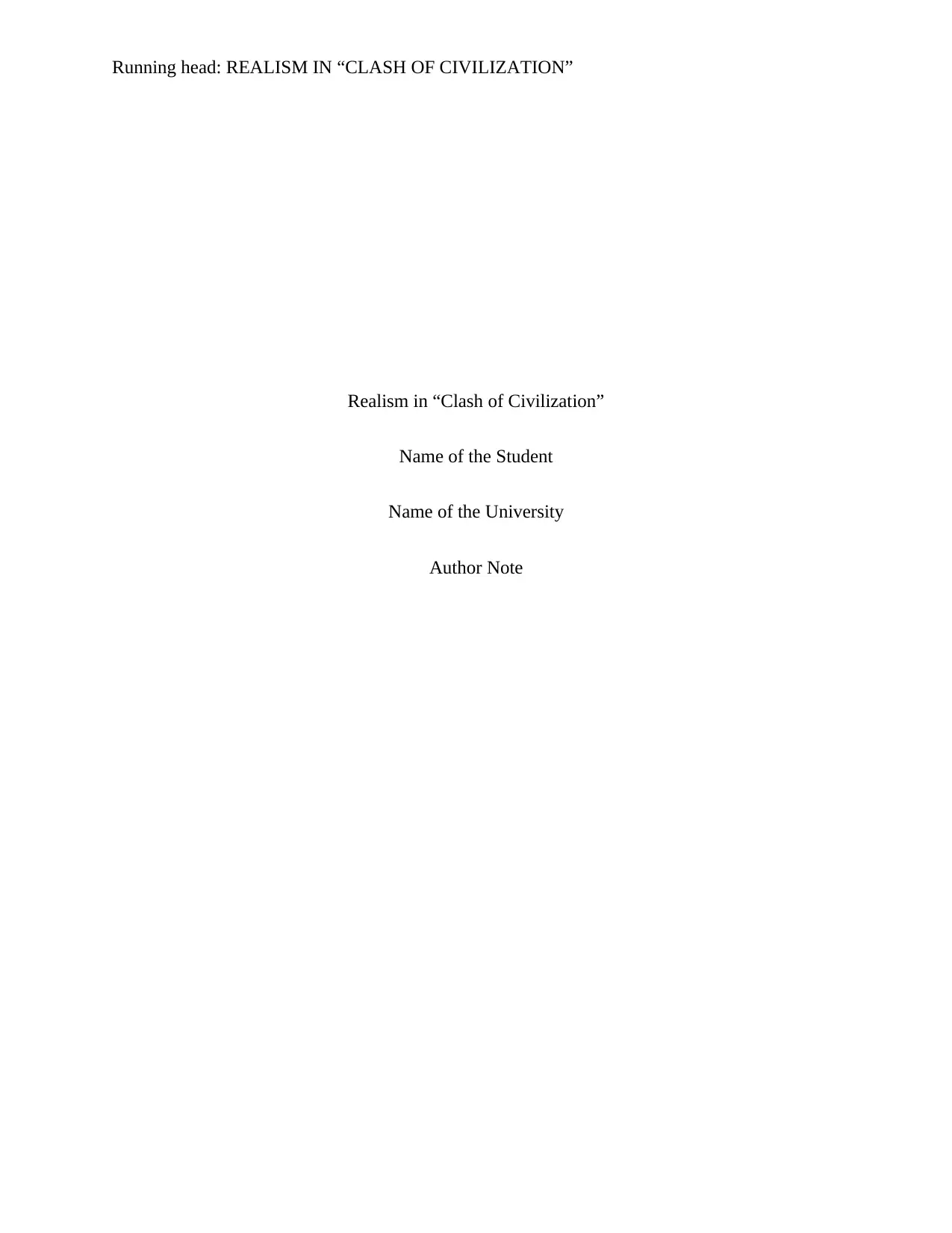
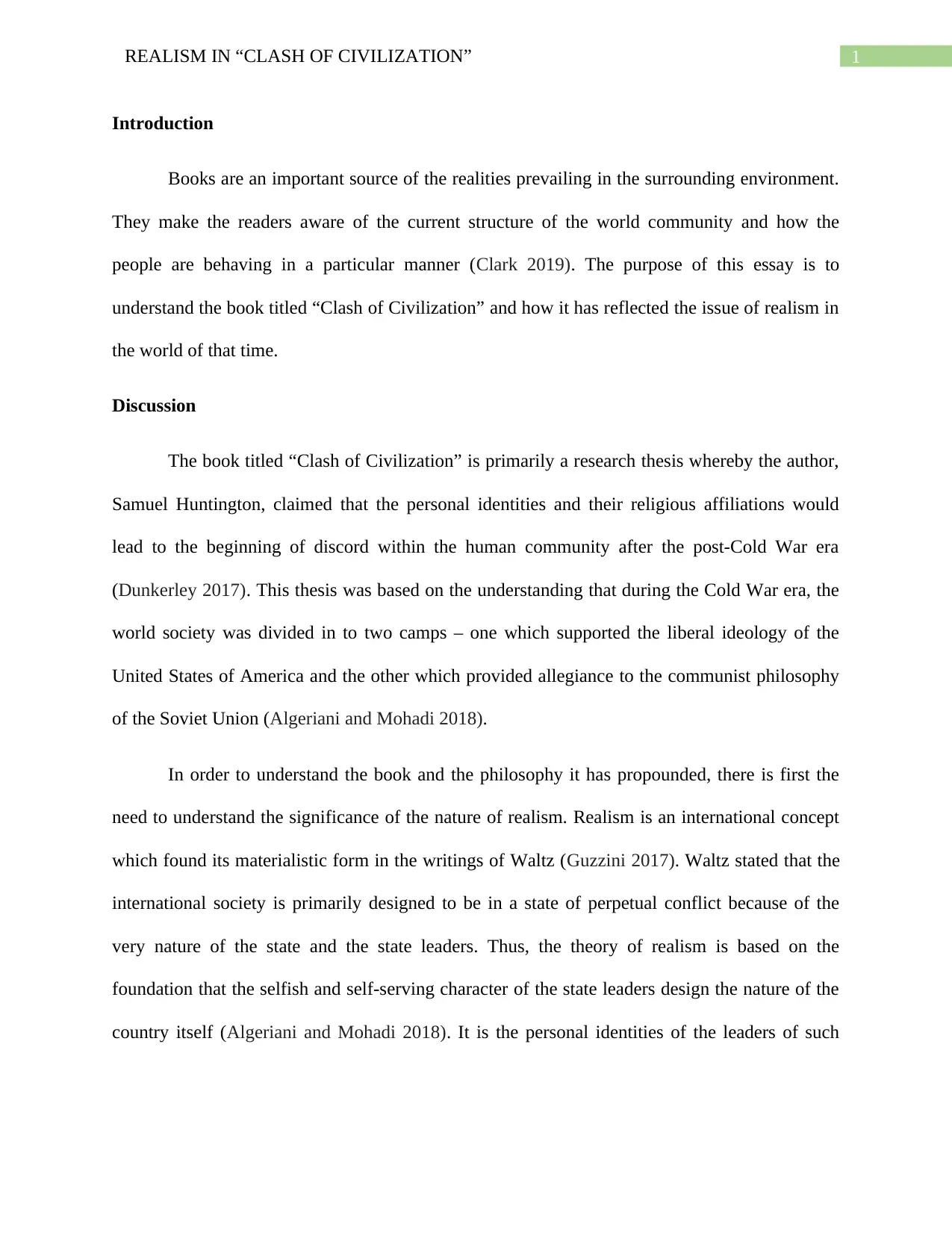
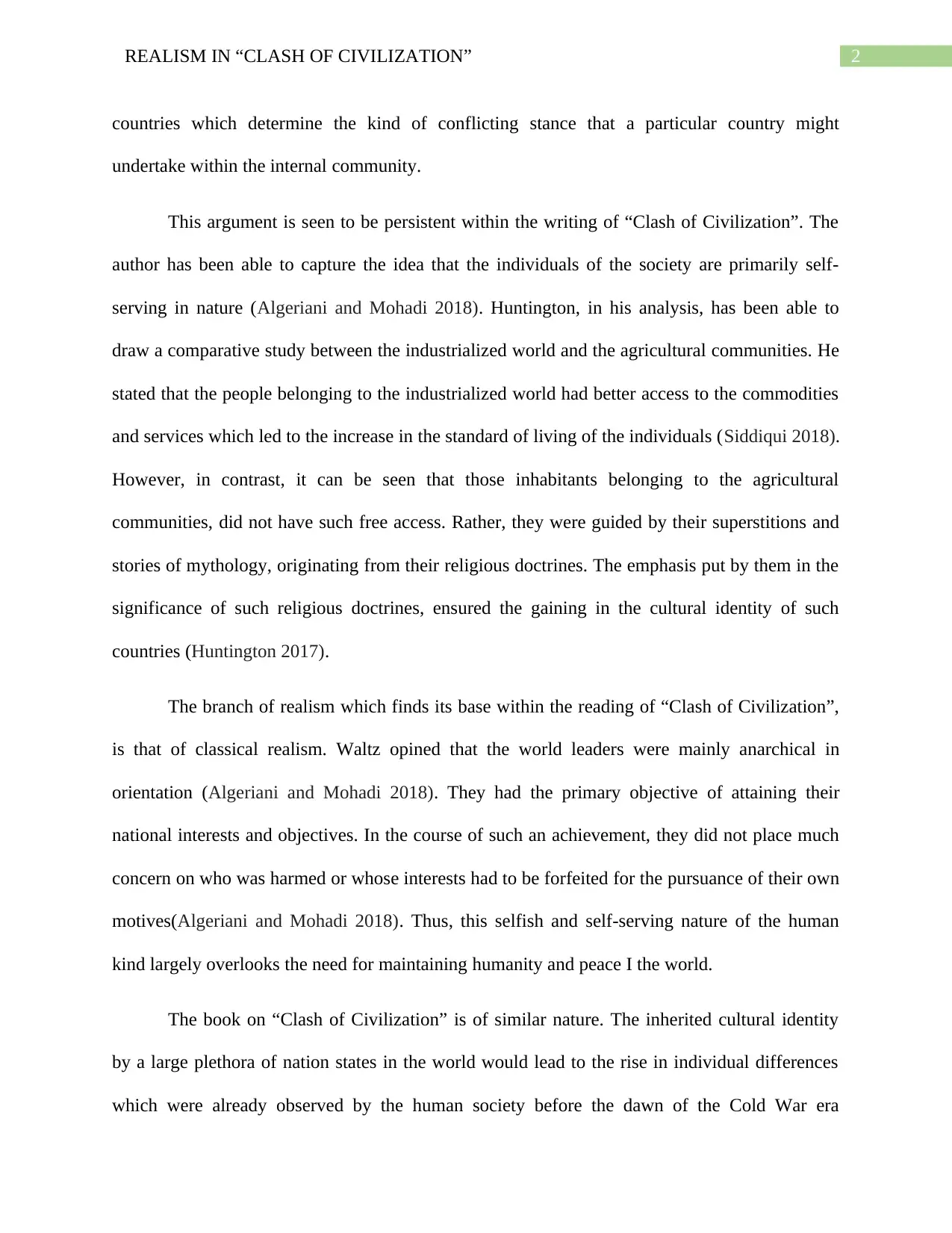

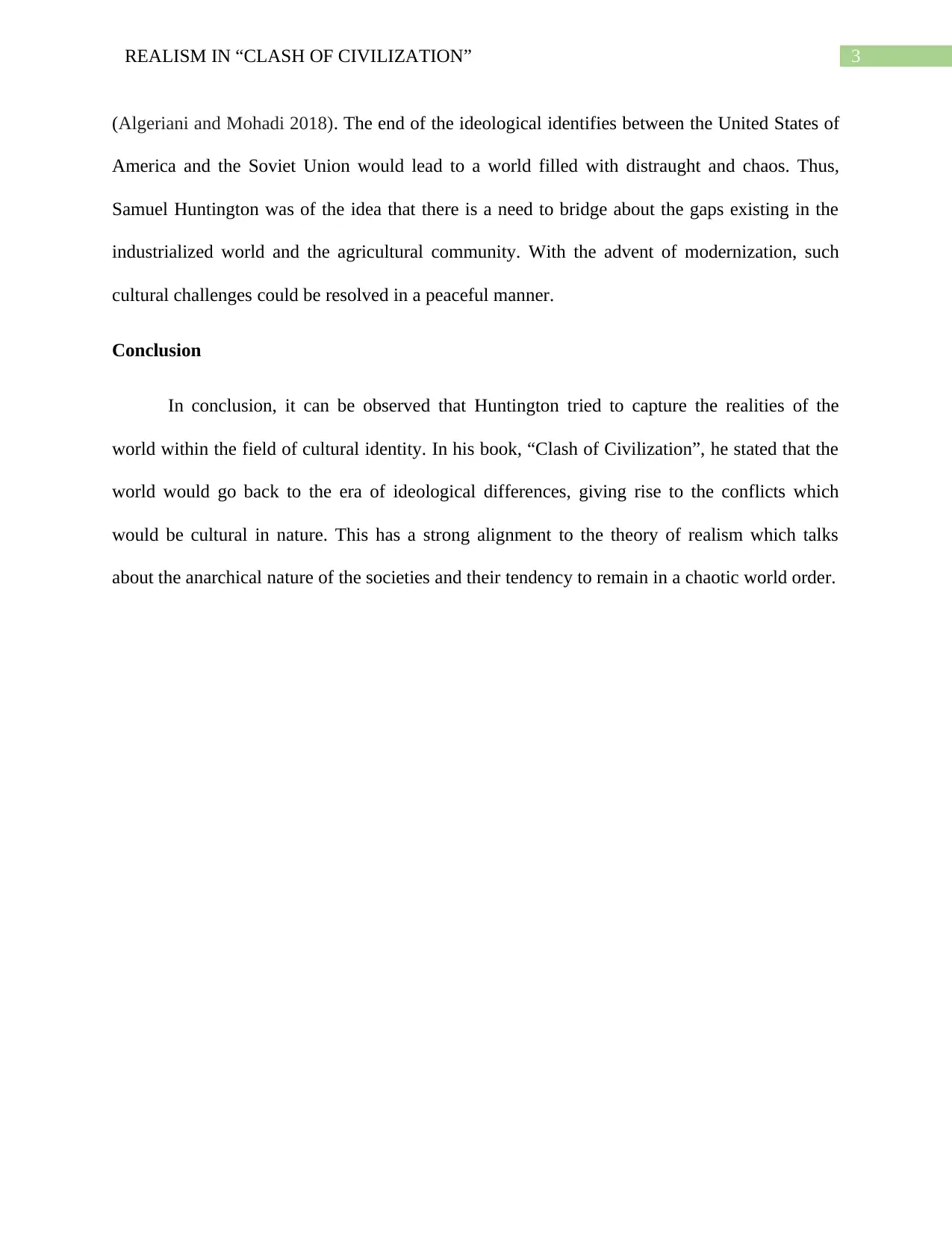
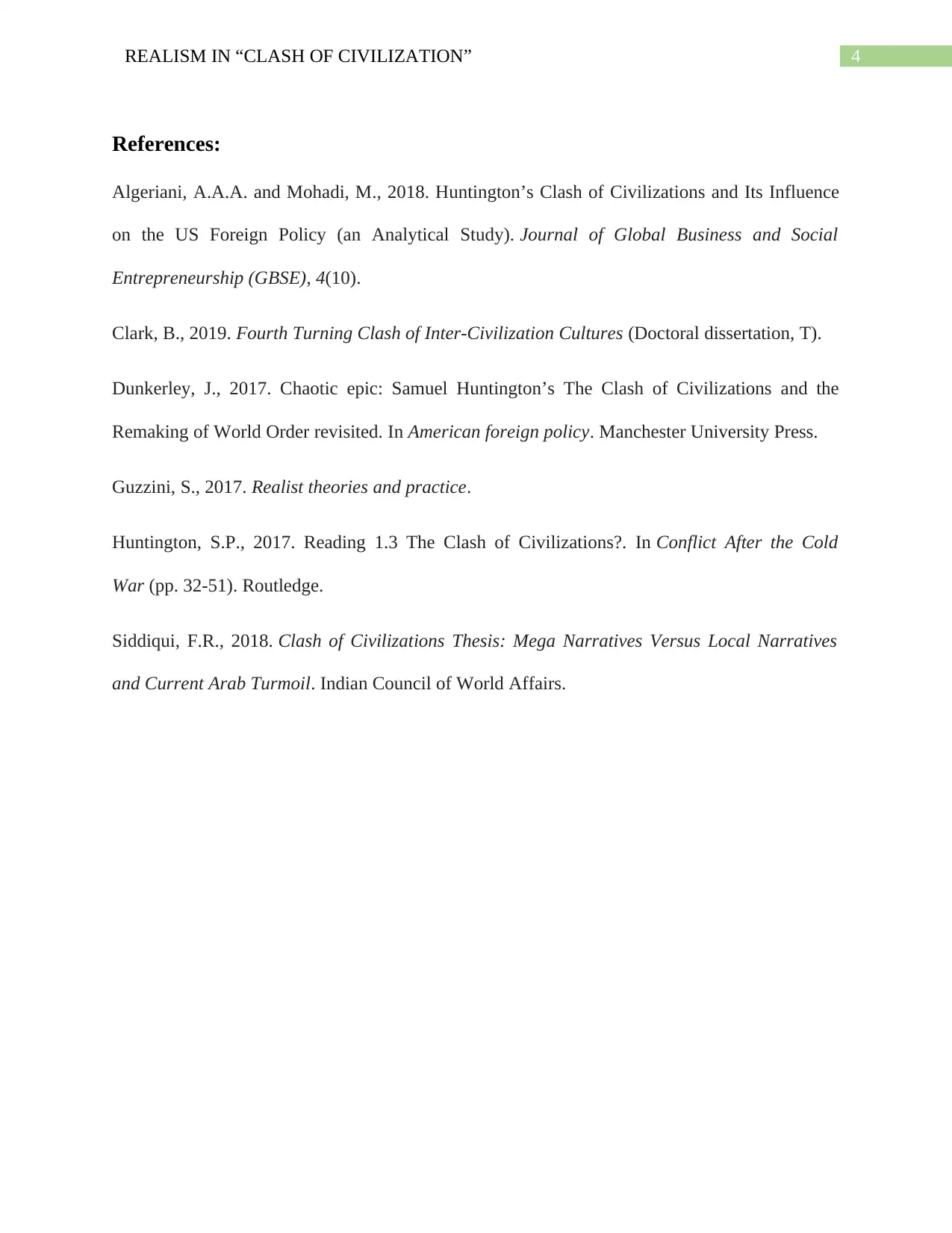


![[object Object]](/_next/static/media/star-bottom.7253800d.svg)